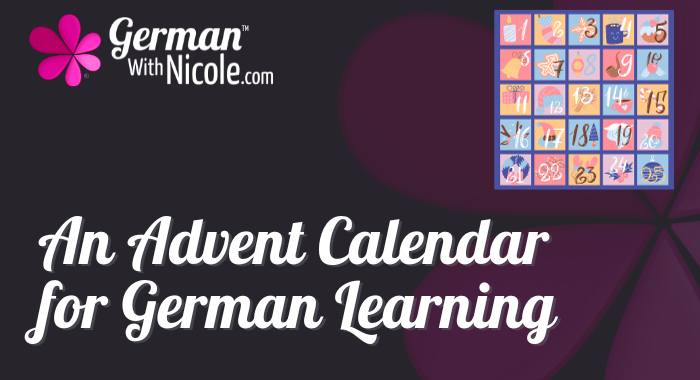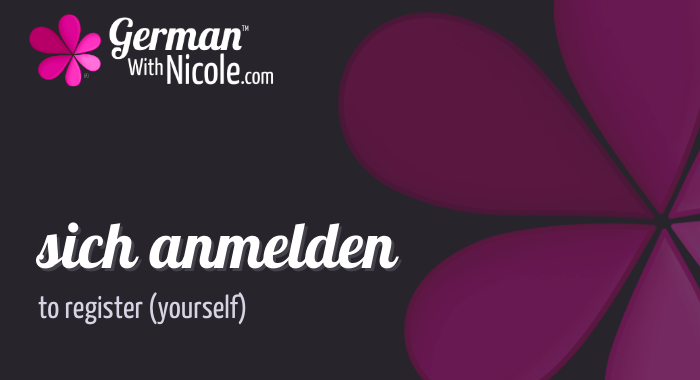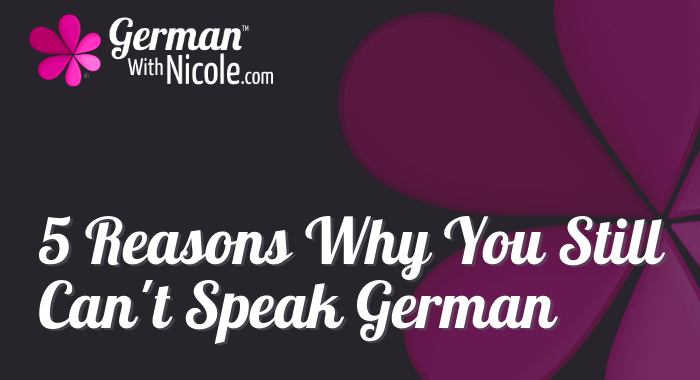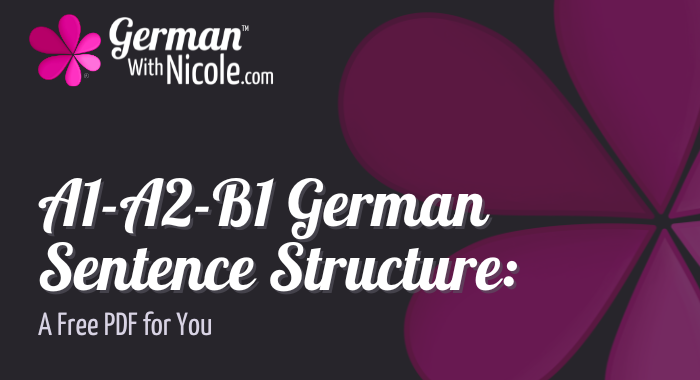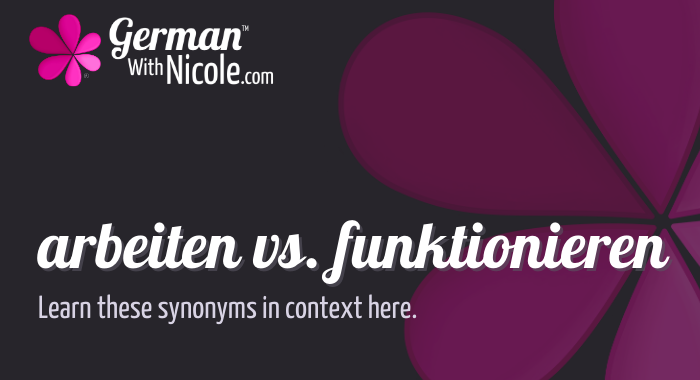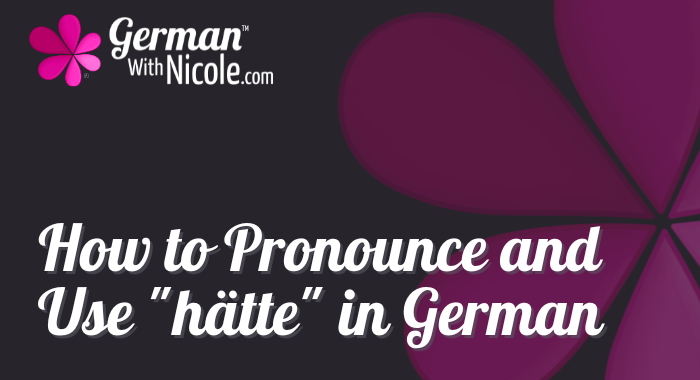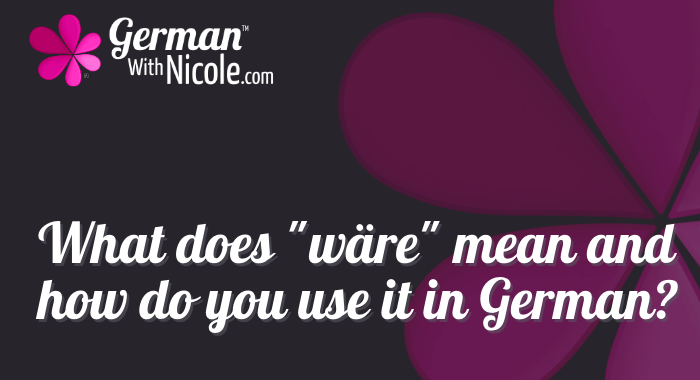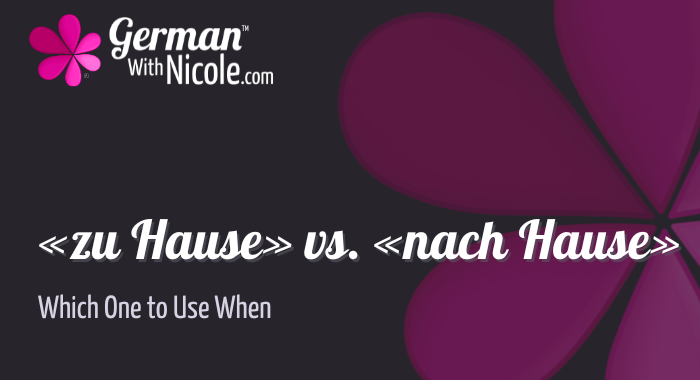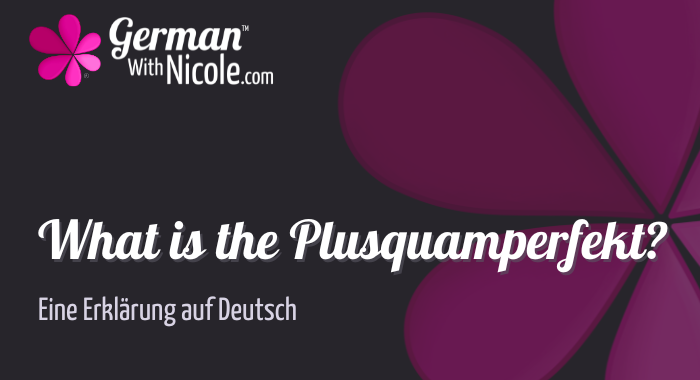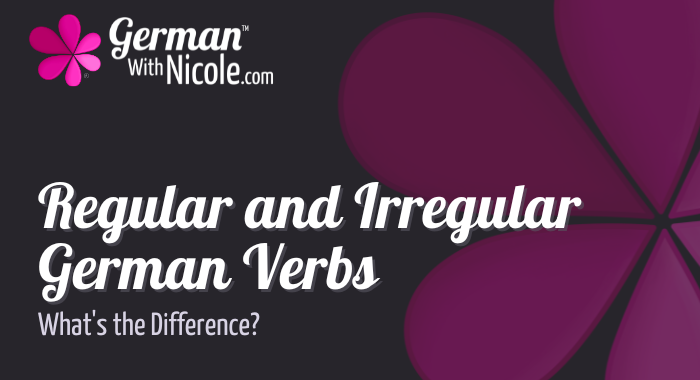das Blog
Grammatik
An Advent Calendar for German Learning
How can we use an 'Adventskalender' for German learning?
Ask my clients. ;-)
sich anmelden - Conjugations and Meaning
sich anmelden
Ohhhh, reflexive separable verbs. You can pride yourself in your use of reflexive verbs as soon as you start learning them. (See what I did there? Pride yourself. Ah-ha, ah-ha!) And today you'll learn sich anmelden, to register (yourself) for a German class.
After the intro you'll learn the conjugations for the verb sich anmelden, and then you'll hear a German text. After a very short interlude you'll hear the same text in English. That's verb conjugations, German text, English t…
5 Reasons Why You Still Can't Speak German
Frustration can run pretty high when you take a German class but you just can’t seem to speak it correctly. The baker in Germany doesn’t understand you so you have to point and the person you ask for directions switches to English.
So why is it that you have taken class after class or lesson after lesson, but you still can’t speak German?
There might be more than one reason, and here are five which are common themes amongst German learners.
Which one stops you from speaking German?
Reason …
arbeiten versus funktioneren
When should you use 'arbeiten' and when should you use 'funktionieren'?
All the answers are in this episode!
You'll learn these two verbs in the context of wine harvest, too, because it's wine harvest time.
Learning to differentiate synonyms in German works really well when you use context.
This way you can easily build a picture in your mind that will help you for all of your German learning.
If it helps, you can even draw yourself a little sketch of a scene you'll hear in this episode.
A…
How to Pronounce and Use hätte in German
Knowing how to pronounce hätte correctly in German is one thing. Using it correctly is another.
In today's German lesson you'll learn both how to say hätte correctly and how to use it in a few specific phrases.
Imagine how confident you'll feel knowing exactly what to say and pronouncing everything correctly. This will be a step up for your German.
Plus you'll learn how to say "shoulda, woulda, coulda" in German, which uses hätte, and will surely impress your German friends the next time they…
What does "wäre" mean and how do you use it in German?
This episode will take the fear out of using wäre in German.
All it means is "would be," but would be has nothing to do with reality. It actually has to do with things which are unreal.
Something that isn't true now, but would be nice or would be nuts or would be fantastic.
This grammar topic is known as the "Konjunktiv II." We'll use only the present tense today.
If this is brand new for you, it's best to take it one step at a time. The first step are the very straight-forward sentences (or…
"zu Hause" vs. "nach Hause"
The difference between "zu Hause" vs. "nach Hause" easily trips up German learners, but it doesn't have to trip you up if you use the tips below.
1. "zu Hause" = (at) home
"zu" is usually used as a preposition, so it would stand by itself and you might think that "zu Hause" means "to home."
This is an exception.
When you say "zu Hause," you're really using it as one block of language.
Think of the sentence "Ich bin zu Hause" and picture it like three wooden blocks:
[Ich] [bin] [zu Ha…
What is the Plusquamperfekt?
The Plusquamperfekt is a form of the past tense in German.
It's generally reserved for high intermediate and advanced learners at levels B2 and C1.
If you're not there yet, I recommend you save this blog post for later.
The remainder of this blog post is in German, as is the explanation video.
![]()
Das Plusquamperfekt ist sehr hilfreich, wenn Sie über zwei verschiedene Ereignisse reden wollen, und beide bereits passiert sind.
Es kann viel Spaß machen, wenn Sie das Plusquamperfekt bilden und au…
Regular and Irregular German Verbs: What's the Difference?
Almost all of the people who sign up for private German lessons have already run into German verbs and their conjugations.
When we get to the Perfekt (the present perfect or spoken past tense), it's always interesting to hear what they think of it so far.
Here are a few of the top questions people have asked me about learning the Perfekt:
-
Are these regular or irregular verbs?
-
What's the difference between them?
-
What's the pattern for these verbs? And for these verbs? And f…
Categories
- A1 (69)
- A2 (54)
- B1 (46)
- B2 (23)
- C1 (22)
- Deutsch lernen (78)
- Einkaufen (15)
- Essen (12)
- Grammatik (23)
- Hören (14)
- Landeskunde und Kultur (49)
- Lesen (11)
- Musik (5)
- Nachrichten (4)
- Podcast (61)
- Pronunciation (3)
- Schreiben (3)
- Schwäbisch (4)
- Spiele und Spaß (Games and Fun) (12)
- Sprechen (13)
- Vokabeln (39)
- Video (11)
